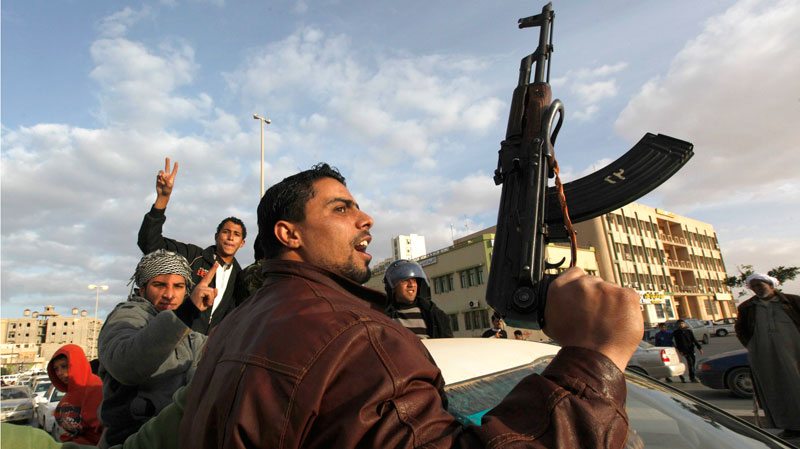South Africa has played an often contrarian role in the Libyan conflict, the product of a foreign policy driven by fear of Iraq-like instability and the desire to see Africa solve its own problems, analysts say.
South Africa’s reluctance to allow the UN to release Libya’s frozen assets — overcome only in a last-minute compromise reached with the US on Thursday — and its hesitancy to recognize the rebels’ National Transitional Council (NTC) have put Pretoria on the wrong side of its sometime allies in the West.
South Africa voted for the UN resolution authorizing the air campaign in Libya, but has since lashed out at the NATO-led bombing, with a range of top officials saying the no-fly zone was hijacked to overthrow long-time leader Moamer Kadhafi.
Though not as vehement as Zimbabwean President Robert Mugabe — who called NATO a “terrorist organization” — President Jacob Zuma said he felt the UN resolution was “abused for regime change” and decried the loss of life in Libya.
And Deputy President Kgalema Motlanthe said NATO commanders should be investigated alongside Kadhafi by the International Criminal Court for war crimes.
South Africa continues to voice support for the African Union roadmap for Libya, which envisions a transitional government, a new constitution and elections, but was rejected by the rebels because it did not call for Kadhafi’s departure.
“We are still very confident and very proud of the way we have been doing that and the way we continue doing when the dust settles and the visitors leave,” Foreign Minister Maite Nkoana-Mashabane said.
“Africa remains committed to dealing with African problems.”
Pretoria has stood fast in its refusal to recognize the rebel government, and would not let the UN unfreeze $1.5 billion in Libyan assets until all references to the NTC were removed.
For veteran political analyst Adam Habib, the moves stem partly from South Africa’s resentment at being ignored on Libya.
“The question is what is South Africa up to, and why is it taking a contrarian view? Firstly, I think it has wounded pride. Second, I think it has concerns about a civil war and how to get everybody around the table,” the University of Johannesburg political scientist told AFP.
“I think they really do fear civil war. And I think there’s a legitimate concern. … And while Western governments can get the rebels around the table, they’re unlikely to succeed in getting Kadhafi’s forces around the table.”
And, he says, South Africa’s ruling African National Congress (ANC) is at its core more concerned with African nationalism than with human rights.
Speculation has been rife in recent months that Africa’s reticence on Kadhafi was the product of his decades spreading Libyan oil wealth around the continent — including to the ANC.
But analysts downplayed that theory Friday.
“Lots of people have pointed to the fact that Kadhafi was a historical supporter of the ANC, and there have been rumors that Kadhafi has helped out Jacob Zuma personally,” Laurence Caromba, an analyst at the University of Pretoria’s Centre for International Political Studies, told AFP.
“But South Africa did vote in favour of the initial resolution that authorized the bombing. … It’s not like we’ve taken an unequivocally pro-Kadhafi position throughout this entire crisis.”
Caromba said that while Pretoria has been criticized for a “lack of coherency” in its Libya policy, its main priority is avoiding “another Iraq”.
“For the sake of continental stability we need to have a stable government in Libya right now. It’s a very delicate area,” he said.










